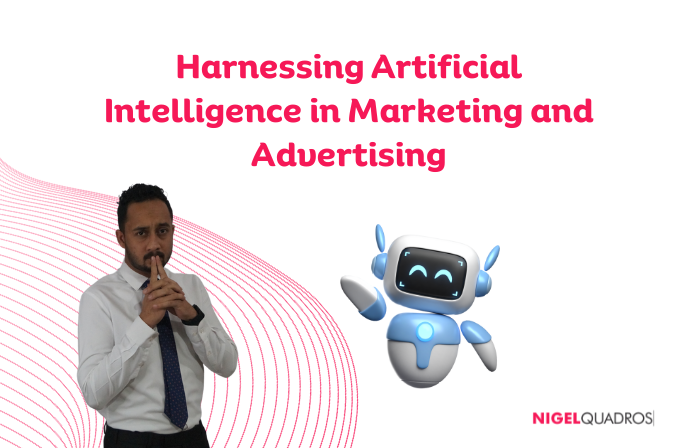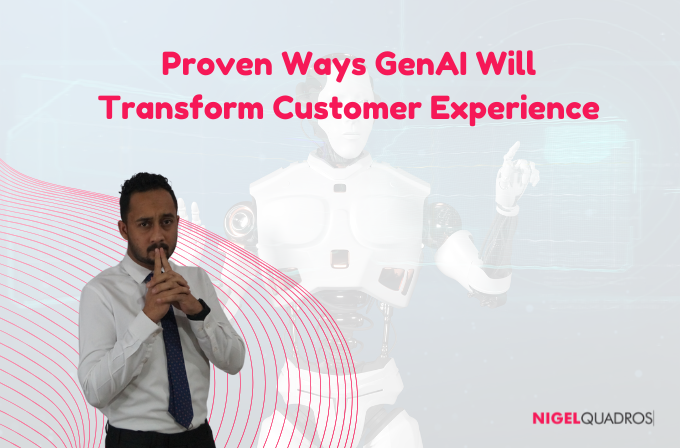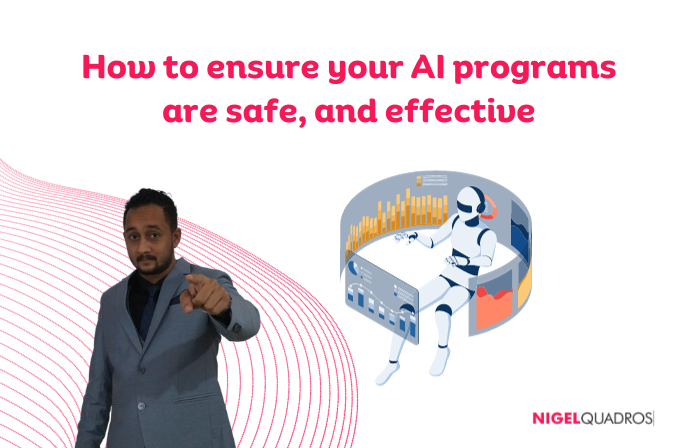The ability to connect with the right audience at the right time has become an invaluable asset for businesses. This is where artificial intelligence (AI) enters the stage, transforming the way companies approach marketing and advertising. AI is not a futuristic concept; it’s already in widespread use, redefining the rules of the game. In this article, we’ll delve deep into how companies are leveraging AI in marketing and advertising to drive unprecedented success.
Understanding Artificial Intelligence in Marketing and Advertising
Before we explore the applications, let’s ensure we’re on the same page regarding what AI entails. AI refers to the development of computer systems capable of performing tasks typically requiring human intelligence. This encompasses various technologies, such as machine learning, natural language processing, computer vision, and data analytics. When AI integrates with marketing and advertising, it empowers companies to make data-driven decisions, automate complex tasks, enhance personalization, and optimize campaign performance.
AI’s Impact on Marketing and Advertising
AI’s role in marketing and advertising is multi-faceted, touching almost every aspect of these domains. Here’s an overview of how companies are capitalizing on AI-driven strategies:
1. Personalization and Customer Insights
AI allows businesses to gain profound insights into their customers’ preferences and behaviors. This knowledge forms the foundation of highly personalized marketing campaigns. AI algorithms analyze data from various sources, including social media, website interactions, and purchase history, to create detailed customer profiles. Armed with this information, companies can tailor their content and product recommendations to align with individual preferences.
For example, e-commerce giant Amazon uses AI to recommend products based on a user’s browsing and purchase history. Netflix employs AI to suggest movies and shows that match a viewer’s taste. Such personalized experiences enhance customer engagement and increase the likelihood of conversion.
2. Chatbots and Virtual Assistants
Customer service is a critical aspect of marketing, and chatbots and virtual assistants have emerged as valuable AI-driven tools. These automated systems can answer questions, resolve issues, and guide users through the purchase process in real-time. They operate 24/7 and never lose patience, ensuring consistent and efficient customer service.
For instance, Domino’s Pizza uses an AI-powered chatbot to take pizza orders. Chatbots are also commonly found on websites to assist with inquiries and enhance the overall customer experience.
3. Content Generation
Content is the lifeblood of marketing, and AI has made significant strides in generating written and visual content. With the help of natural language processing (NLP), AI systems can produce human-like text, making it possible to automate content creation for blogs, product descriptions, and even news articles. Additionally, AI-driven tools can generate graphics and visuals, making the creation of engaging content more efficient.
4. Programmatic Advertising
AI plays a central role in programmatic advertising, transforming how businesses purchase and serve ads. Programmatic advertising involves real-time, automated buying of ad space, enabled by AI algorithms. These algorithms analyze vast amounts of data to identify the most suitable ad placements and audience segments.
For instance, Google’s Display & Video 360 is a programmatic advertising platform that uses AI to automate media buying and optimize campaign performance. By targeting the right audience at the right moment, programmatic advertising helps companies maximize the impact of their ad spend.
5. Predictive Analytics
AI’s predictive capabilities empower businesses to forecast future trends and customer behavior accurately. By analyzing historical data and identifying patterns, AI models can predict which products customers are likely to purchase, the best times for launching marketing campaigns, and the potential impact of marketing efforts.
Amazon uses predictive analytics to anticipate customer demand, optimizing its inventory and ensuring products are available when customers want to buy them. This proactive approach minimizes inventory costs and enhances customer satisfaction.
6. Voice Search Optimization
The rise of voice-activated devices, such as Amazon’s Alexa and Apple’s Siri, has created new opportunities for companies to engage with consumers. AI is instrumental in optimizing content for voice search, ensuring that businesses can capture traffic from users speaking their queries rather than typing them.
Companies like Starbucks have integrated with voice-activated platforms to facilitate voice-driven ordering. Optimizing for voice search is essential for staying relevant in the age of smart speakers and voice-activated assistants.
7. A/B Testing and Optimization
AI simplifies A/B testing, a crucial process for improving marketing campaigns. Instead of relying on manual testing, AI algorithms can quickly analyze multiple variables to determine the most effective strategies. This saves time, reduces human error, and enhances campaign performance.
8. Social Media Management
The world of social media is fast-paced, with trends and user behavior evolving rapidly. AI tools can monitor and analyze social media conversations, track brand mentions, and gauge audience sentiment. This data informs social media strategies, allowing companies to engage with their audiences effectively and respond to trends in real-time.
Real-World Examples of AI in Marketing and Advertising
The impact of AI in marketing and advertising can be observed across various industries:
- Retail: Retailers like Zara employ AI-driven systems to manage inventory, ensuring that stores are well-stocked with popular items while minimizing overstock of slow-moving products. Additionally, AI powers virtual shopping assistants that guide online shoppers through the selection process.
- Automotive: AI is integral in the automotive sector, especially for personalized marketing. Companies like Tesla use AI to analyze user data, making recommendations for vehicle upgrades and maintenance.
- Travel: Airlines and hotels use AI to provide personalized recommendations and offers to travelers. AI can analyze past bookings, browsing history, and preferences to offer tailored travel experiences.
- Finance: AI plays a vital role in financial services, from fraud detection to algorithmic trading. In marketing, banks use AI to offer customized financial product recommendations to customers.
- Healthcare: AI-driven chatbots are employed by healthcare providers to offer patient support, appointment scheduling, and information sharing. Pharmaceutical companies use AI to personalize marketing messages to healthcare professionals.
Challenges and Ethical Considerations
While AI offers tremendous potential for marketing and advertising, it also presents some challenges. One significant concern is the ethical use of data. Companies must ensure they respect user privacy and adhere to data protection regulations. The use of AI in marketing must be transparent, and consumers should have control over their data.
Another challenge is the potential for AI algorithms to perpetuate biases present in training data. Efforts must be made to develop algorithms that are fair and unbiased, especially in sensitive areas like recruitment and lending.
The Future of AI in Marketing and Advertising
As AI continues to evolve, it will reshape the landscape of marketing and advertising. With the integration of augmented reality (AR) and virtual reality (VR), AI-driven campaigns will become even more immersive and interactive. Moreover, AI will increasingly enable marketers to predict trends and shifts in customer behavior, allowing for more effective campaign strategies.
The integration of AI with the Internet of Things (IoT) will provide companies with data from a multitude of connected devices, further enhancing personalization and targeting. For example, smart refrigerators will notify consumers when groceries are running low, and AI-driven marketing will suggest products for replenishment.
AI will also drive the development of voice-activated advertising, making it an integral part of marketing strategies. This will require optimizing content not only for text-based search but also for voice search, enhancing the user experience for voice assistant users.
The impact of AI in marketing and advertising is profound and transformative. Companies leveraging AI are equipped to reach their audiences with hyper-personalized content, automate tasks, and optimize advertising strategies. While there are challenges related to ethics and bias, the continued development of AI promises even greater opportunities and advancements in the field.
As we look to the future, AI will undoubtedly play a central role in how companies understand, engage with, and convert consumers. To stay competitive in the evolving marketing landscape, businesses will need to harness the power of AI to create smarter, more effective, and more personalized marketing and advertising campaigns.




